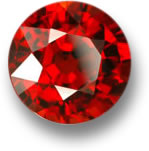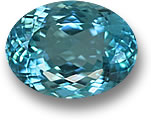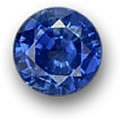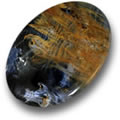Natural Gemstones, Unnatural Names
 Padparadscha Sapphire, Paraiba Tourmaline & Spessartite Garnet
 The realm of gemstones straddles the realms of mineralogy and jewelry commerce, resulting in a blend of both peculiar and common names. While the strange and unusual names can be challenging to recall and spell correctly, it is noteworthy that even the familiar names are frequently misspelled. The realm of gemstones straddles the realms of mineralogy and jewelry commerce, resulting in a blend of both peculiar and common names. While the strange and unusual names can be challenging to recall and spell correctly, it is noteworthy that even the familiar names are frequently misspelled.
Some of the misspellings we see are really just variants, and whether they are misspelling or not depends on where you learned your English. In the UK (and also in Canada and Australia), the science of gemstones is known as gemmology; elsewhere it is known as gemology. Similarly for facetted and faceted. Some variants are perhaps not even regional, such as 'spessartite' and 'spessartine'. But we're fairly sure that 'jems' and 'jemstones' are always wrong.
 The most common misspelling of a gemstone term is is of a long and difficult word originating in Sri Lanka. The English rendering of the Sinhalese word for lotus blossom is padparadscha. You'll find many incorrect variants of it, including 'padparadsha', 'padparascha', 'padparacha', 'padparadsha', and 'padparasha', You can't really blame anyone for misspelling that mouthful of syllables. The most common misspelling of a gemstone term is is of a long and difficult word originating in Sri Lanka. The English rendering of the Sinhalese word for lotus blossom is padparadscha. You'll find many incorrect variants of it, including 'padparadsha', 'padparascha', 'padparacha', 'padparadsha', and 'padparasha', You can't really blame anyone for misspelling that mouthful of syllables.
Another foreign term for a rare and valuable kind of tourmaline is the next most frequently misspelled term. Paraiba is the name for a type of copper-bearing tourmaline first found in the state of Paraiba in Brazil. The word is short and fairly easy to pronounce. But it is nonetheless frequently misspelled as 'Pariba' or 'Pariaba' tourmaline. You'll sometimes see 'Paraiba topaz' as well. The spelling is correct, but there is no such thing as Paraiba topaz.
 Many English speakers seem to have trouble with gemstone terms that have foreign origins. The term cabochon, the name for a stone cut with a highly polished rounded or convex top with no faceting, comes from the French 'caboche,' meaning small dome. We frequently see it misspelled as 'cabachon'. Or some writers try to make it more French, and spell it 'cabouchon'. Marquise, referring to an elongated oval shape with points on both ends, is often spelled 'marqui' and 'marquis'. Many English speakers seem to have trouble with gemstone terms that have foreign origins. The term cabochon, the name for a stone cut with a highly polished rounded or convex top with no faceting, comes from the French 'caboche,' meaning small dome. We frequently see it misspelled as 'cabachon'. Or some writers try to make it more French, and spell it 'cabouchon'. Marquise, referring to an elongated oval shape with points on both ends, is often spelled 'marqui' and 'marquis'.
 A rare and valuable color change gem, alexandrite, has a name that changes more often that its color. We've seen 'alexanderite', 'alexandrit', 'alexandria', 'alexandra' and 'alexendrite'. A rare and valuable color change gem, alexandrite, has a name that changes more often that its color. We've seen 'alexanderite', 'alexandrit', 'alexandria', 'alexandra' and 'alexendrite'.
Even some of the most familiar gemstone names are misspelled more often that one would expect. We often see 'blue saphire' and 'star saphire'. You wouldn't think many people would misspell diamond, but we see 'dimond', 'daimond' and 'diamon'. Then there's 'tanzinite' and 'tanzenite'. Not to mention 'andasine', 'labrodite', 'labordorite' and 'rhodonite'.
|
